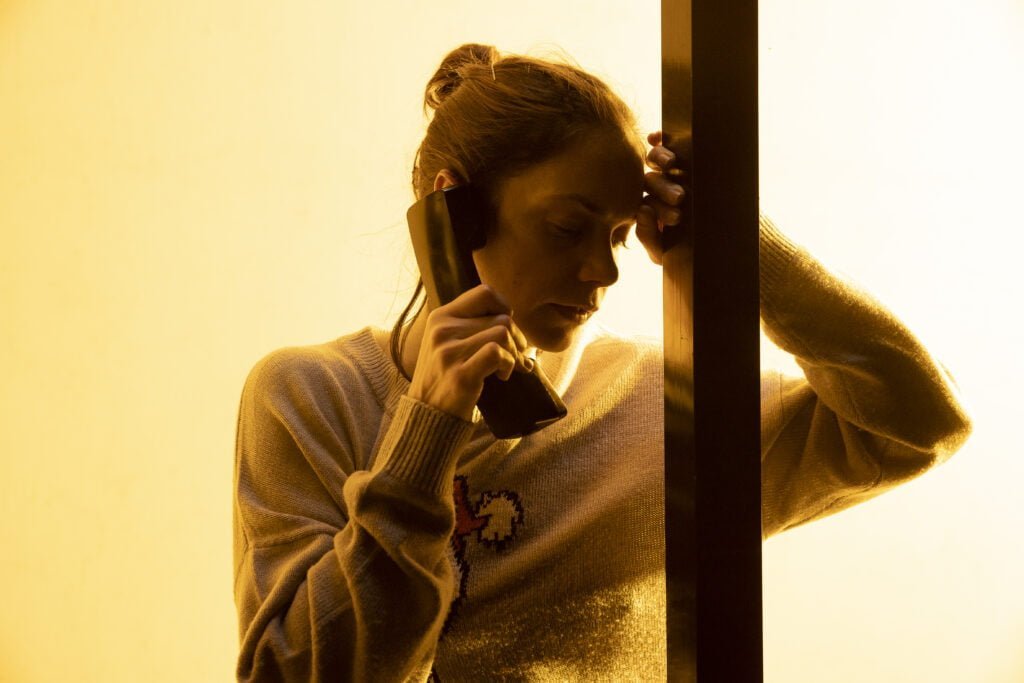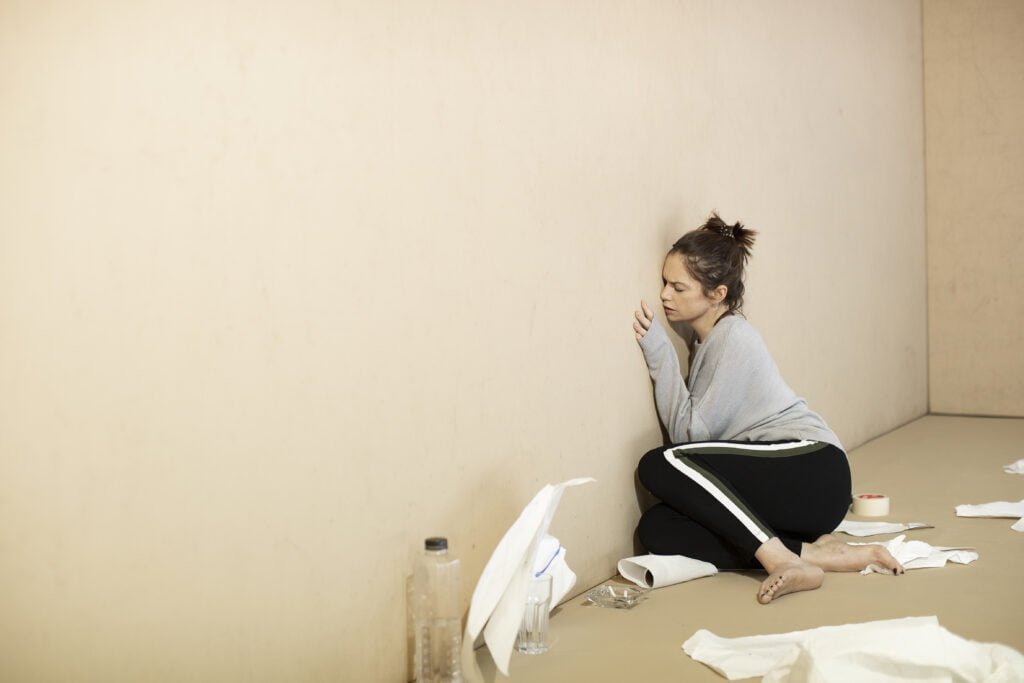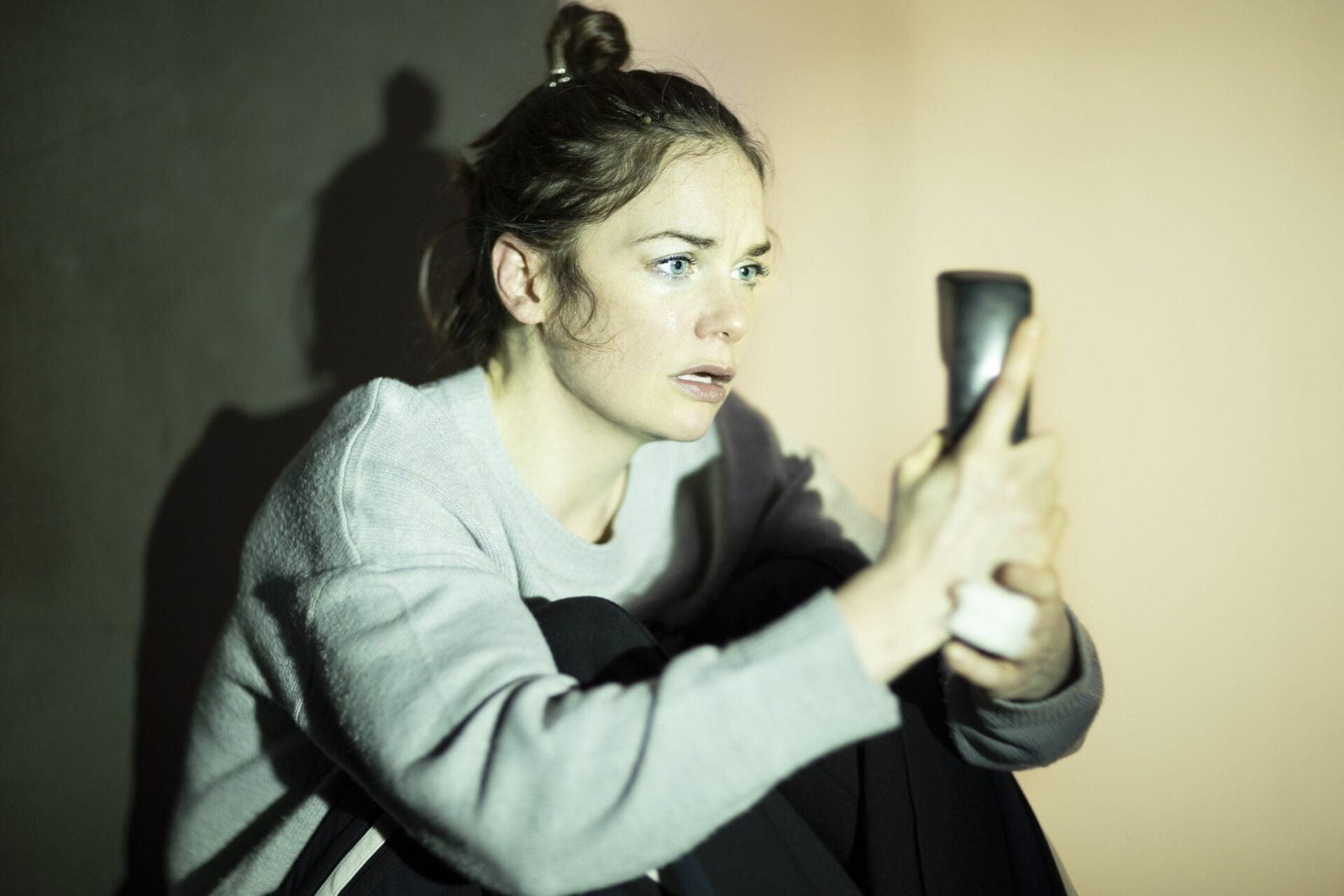The End of the Affair
“It’s like asking a fish to spend its life without water.”
She

At 70 minutes, it is the director Ivo van Hove and the lone actor Ruth Wilson who fill the Harold Pinter Theatre with a piece by Jean Cocteau, which was first staged in Paris in 1930. It is about love, loss and pretence with the woman (Ruth Wilson) talking on the telephone to her lover who is ending their five year relationship.
He is making arrangements to collect his things and she wants him to take the dog. As we can only hear one half of the conversation, hers, we cannot be totally sure what he is saying. The writing is clever so that we can ascertain most of what he is saying from her replies. Although at one point, at the mention of his mother, I could only wonder whether the mother was moving into the apartment, but whatever he said, seemed to shock his mistress.
In the first half of the play, she pretends to be totally cool with their parting. No pressure! Right! She tells him she is wearing a seductive blue dress, been out to supper and is fine – none of which is true. She is moping about at home and wearing two of his jumpers. She speaks softly, giggles artificially when he tells her to pack up the letters, both his and hers and leave them for him to collect. She has obviously read those magazines which tell you how to handle a man by being reasonable.
Because we can see her, we know that, as he supposes, she is acting not to be distraught at the break up. He cannot be sure as he has no visual clues which we have. Would he prefer her to be upset?

It was Byron who said, “Man’s love is of man’s life a part; it is a woman’s whole existence.” This is another play showing a woman completely dependent on validation from a male partner, albeit from an era when telephone connections were unreliable and shared, party lines meant others could listen in to, or interrupt your call. She cradles the phone balancing the handset on her facial profile, forehead to chin, begging for him to ring again.
Ruth Wilson is a charismatic actor and holds our attention. Her outstretched hand against the glass conveys distress. She is mostly a small, crunched up figure clinging to the telephone. When she steps outside onto the balcony, we hear the distant sound of traffic below but we realise how low the aperture is on stage as she now seems over six feet tall.
Designer Jan Versweyveld, long term collaborator of Ivo van Hove, has too little to do with a plain set of bare cream walls behind a sliding glass window with an odd sized grey margin to our left and along the top. No distracting design is needed with the play’s emphasis on the woman’s voice but her blue frock is beautiful.
Freta Riding’s “Lost Without You” is a fitting musical accompaniment. Was it played at a slower speed? It will be really interesting to compare Almodóvar’s film with Tilda Swinton with van Hove’s adaptation of Cocteau’s play with the remarkable Ruth Wilson.
The question is how does a beautiful, intelligent woman get so dependent on this man that she says, “You are my only breathable air.” Is there a cure for this condition? Has that much changed since 1930? She says at one point she had a choice, “Reject five years of happiness or accept the risk.”

Production Notes
The Human Voice
Written by Jean Cocteau
Adapted and Directed by Ivo van Hove
Cast
Starring:
Ruth Wilson
Creatives
Director: Ivo van Hove
Designer: Jan Versweyveld
Production Sound: David Gregory
Originally Produced by International Theatre Amsterdam
Information
Running Time: One hour ten minutes without an interval
Booking to 9th April 2022
Theatre:
Harold Pinter
Panton Street
London SW1Y 4SW
Tube : Piccadilly Circus
Telephone: 03330 096 690
Website: haroldpintertheatre.co.uk
Reviewed by Lizzie Loveridge
at the Pinter
on 22nd March 2022

